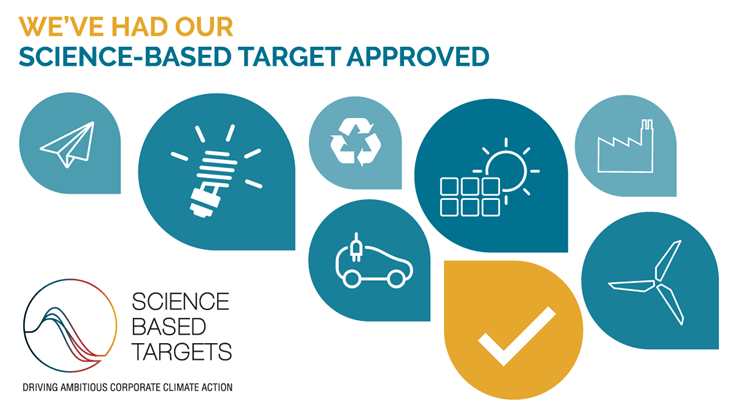We’re committed to helping tackle climate change and reducing our impact on the environment. We’ve committed to be carbon neutral1 by 2030 and have set a science-based target.
As an information services business, the main environmental impact we control is the carbon footprint of our offices, data centres and business travel. We’re also working to better understand and manage the climate impact of our supply chain and aim to reduce our environmental footprint further by eliminating the use of single-use plastic in our facilities as far as possible.
You can find our environmental reporting data, TCFD reporting and CDP response in the ESG reporting hub.

Our climate goals
Become carbon neutral in our own operations by 2030¹.
Science-based target:
- Scope 1 and 2 (1.5ºC scenario): Reduce absolute Scope 1 and 2 emissions by 50% by 2030 (from 2019).
- Scope 3 (2ºC scenario): Reduce Scope 3 emissions from purchased goods and services, business travel, and fuel-and-energy-related activities² by 15% by 2030 (from 2019).
- Offset 100% of our Scope 1 and 2 emissions by 2025¹.

Science-based target
Our science-based target has been approved by the SBTi. The SBTi’s Target Validation Team has classified Experian’s scope 1 and 2 target ambition and has determined that it’s in line with a 1.5°C trajectory. See our SBTi certificate.

1Includes all Scope 1 and 2 emissions, as well as Scope 3 emissions from purchased goods and services, business travel, and fuel-and-energy-related activities (which represent 83% of our baseline emissions in Scope 3). This is aligned with the boundaries covered by our science-based target approved by the Science-Based Target initiative (SBTi). Once emission reductions have been achieved in line with our science-based target, Experian will offset the remaining emissions within the boundaries of our science-based target to achieve carbon neutrality by 2030.
2Also known as ‘well-to-tank’, is an average of all the greenhouse gas emissions released into the atmosphere from the production, processing and delivery of a fuel or energy.
Glossary
Science-based targets
Targets adopted by companies to reduce greenhouse gas (GHG) emissions are considered “science-based” if they’re in line with what the latest climate science says is necessary to meet the goals of the Paris Agreement — to limit global warming to well below 2 degrees C above pre-industrial levels and pursue efforts to limit warming to 1.5 degrees C. These targets need to be developed in accordance with SBTi criteria and submitted to their scientific committee for validation.
Scope 1 emissions
Scope 1 covers direct emissions from owned or controlled sources. (For example, gas consumption, diesel used in our generators and company vehicles).
Scope 2 emissions
Scope 2 covers indirect emissions from the generation of purchased electricity, steam, heating and cooling consumed by the company.
Scope 3 emissions
Scope 3 includes all other indirect emissions that occur in a company’s value chain.
2023 Annual Report
Read the Sustainable Business section of our annual report for an update on Environmental performance.
TCFD
Our TCFD index shows how we’re reporting in line with the Task Force on Climate-Related Financial Disclosure.
Environmental Policy
Our Environmental Policy outlines our commitment to continually improving our environmental performance.